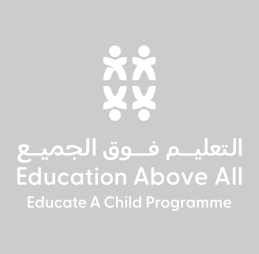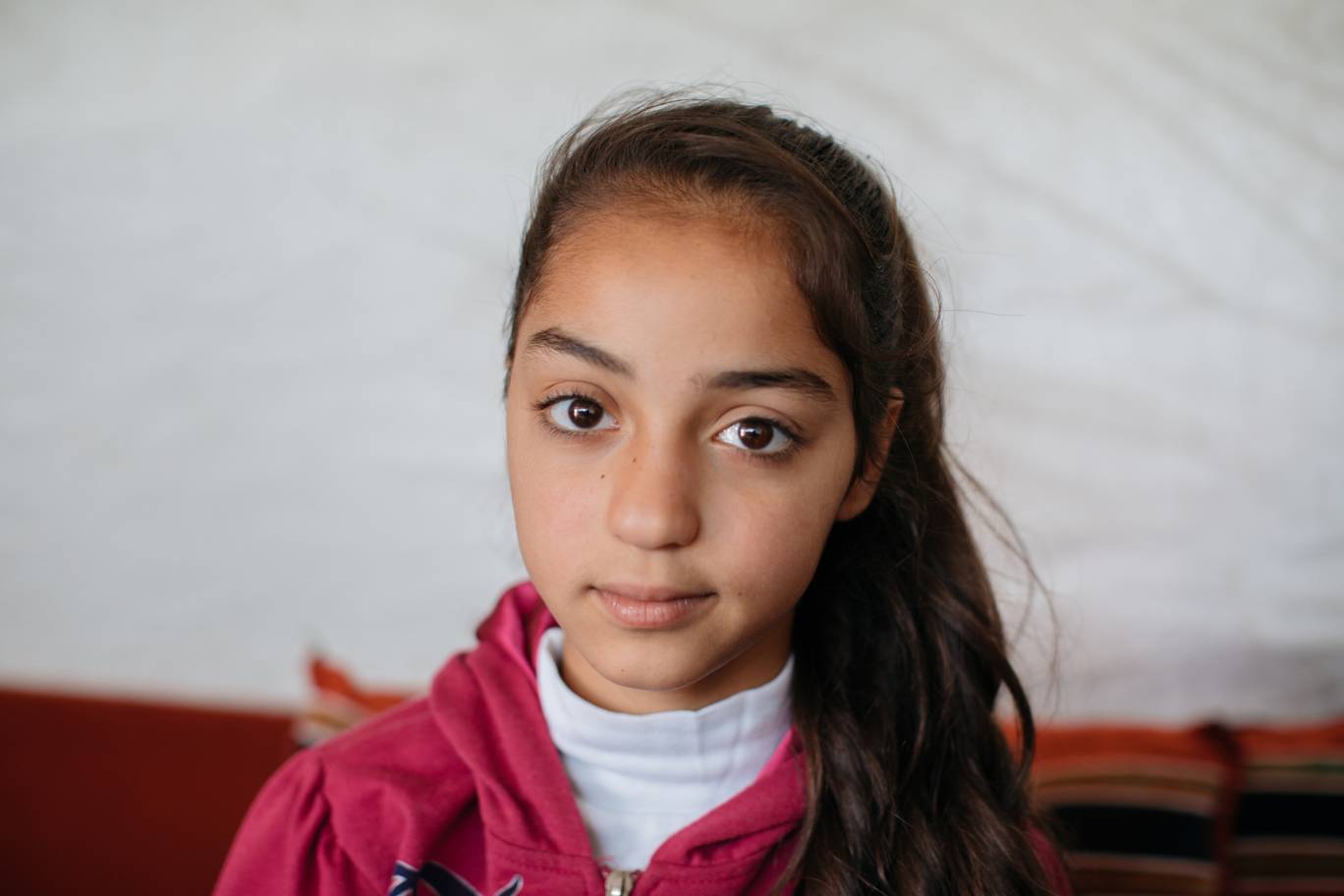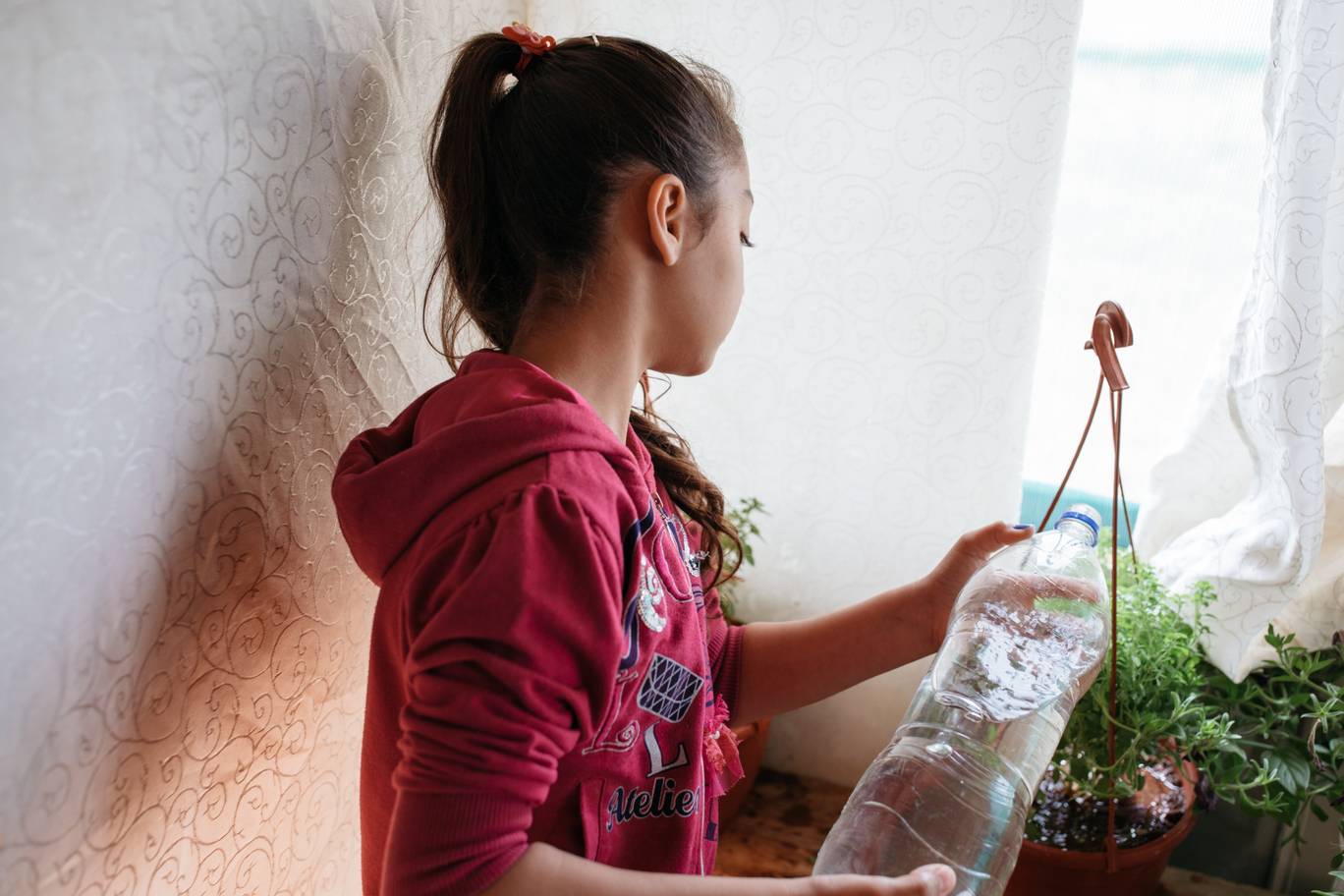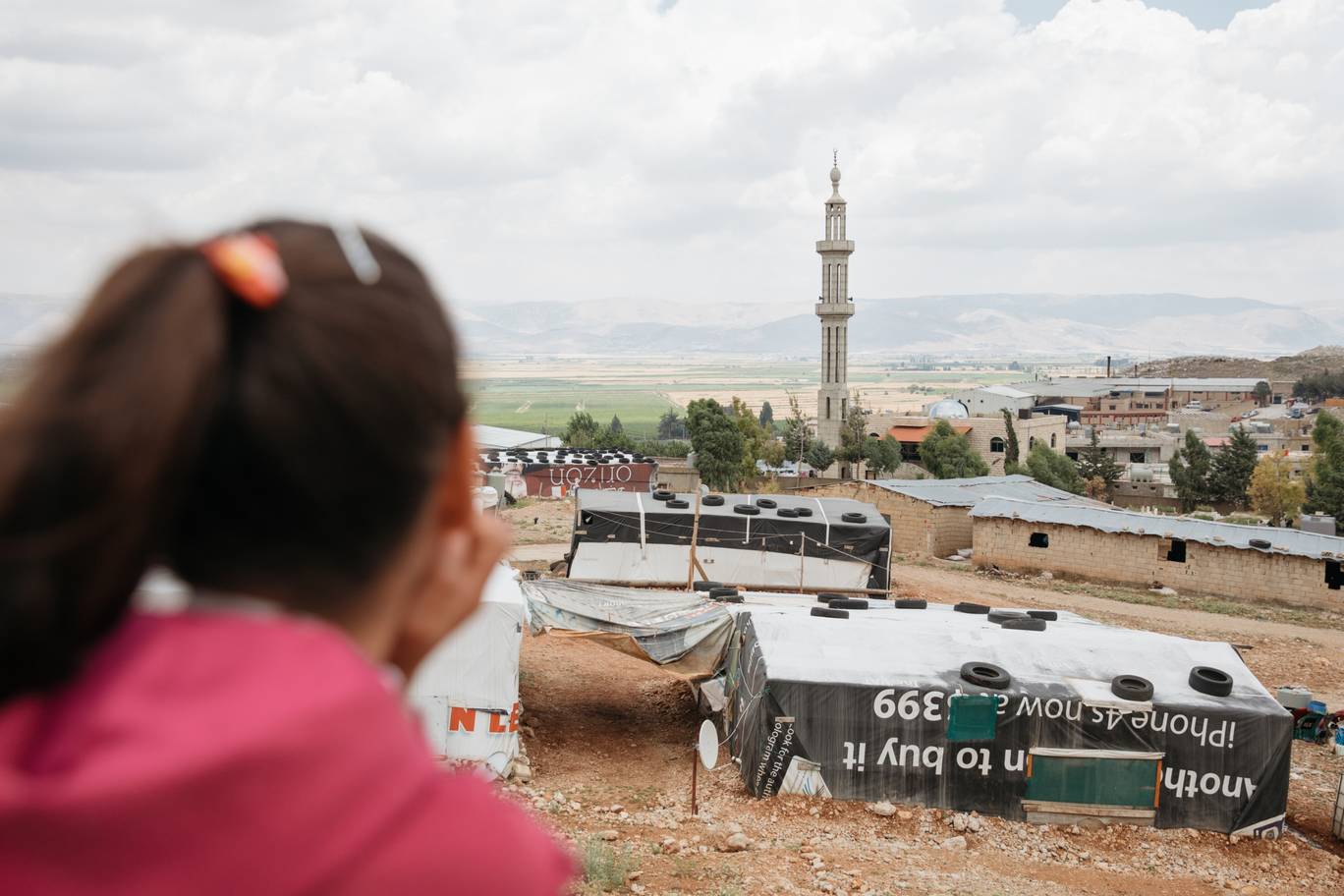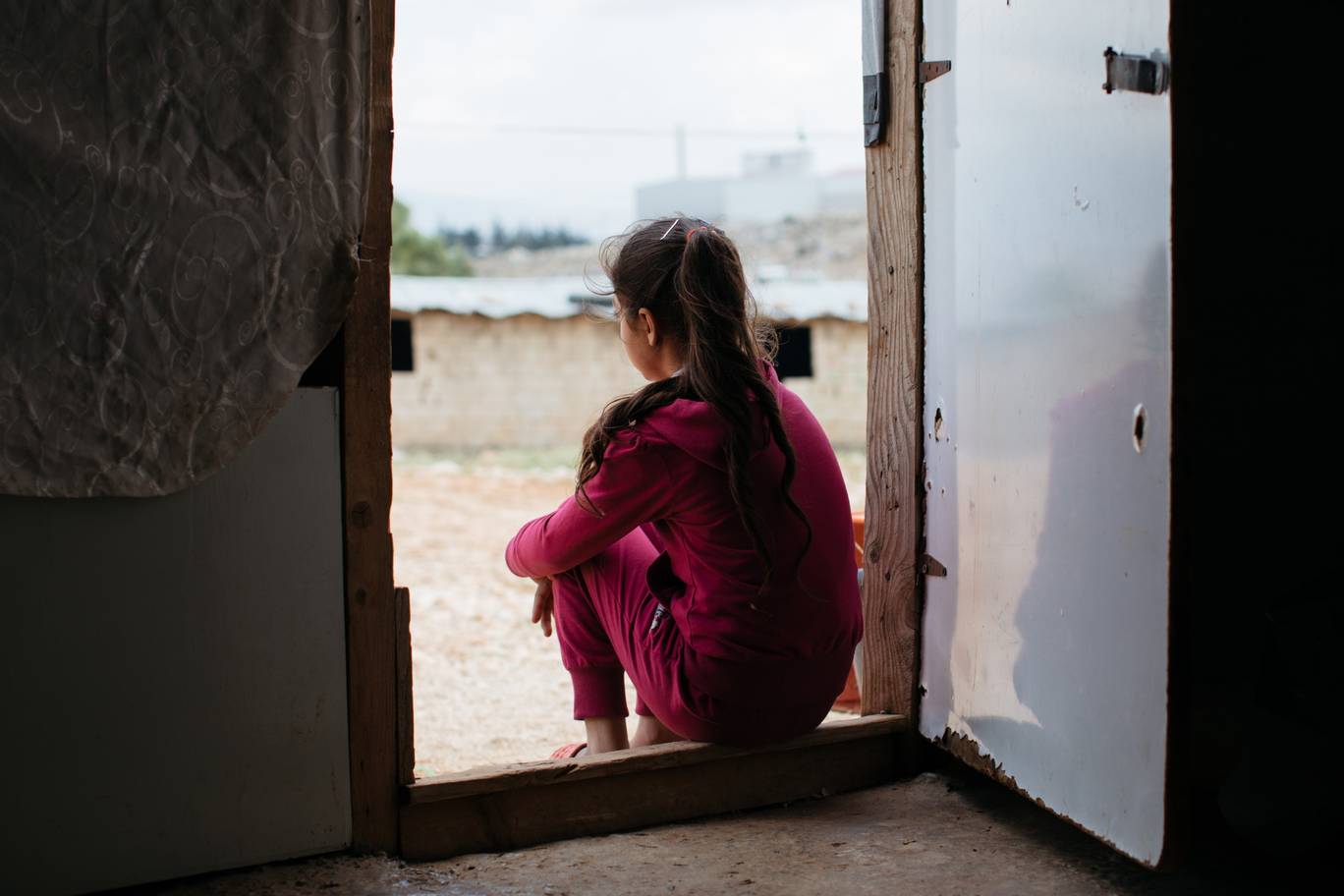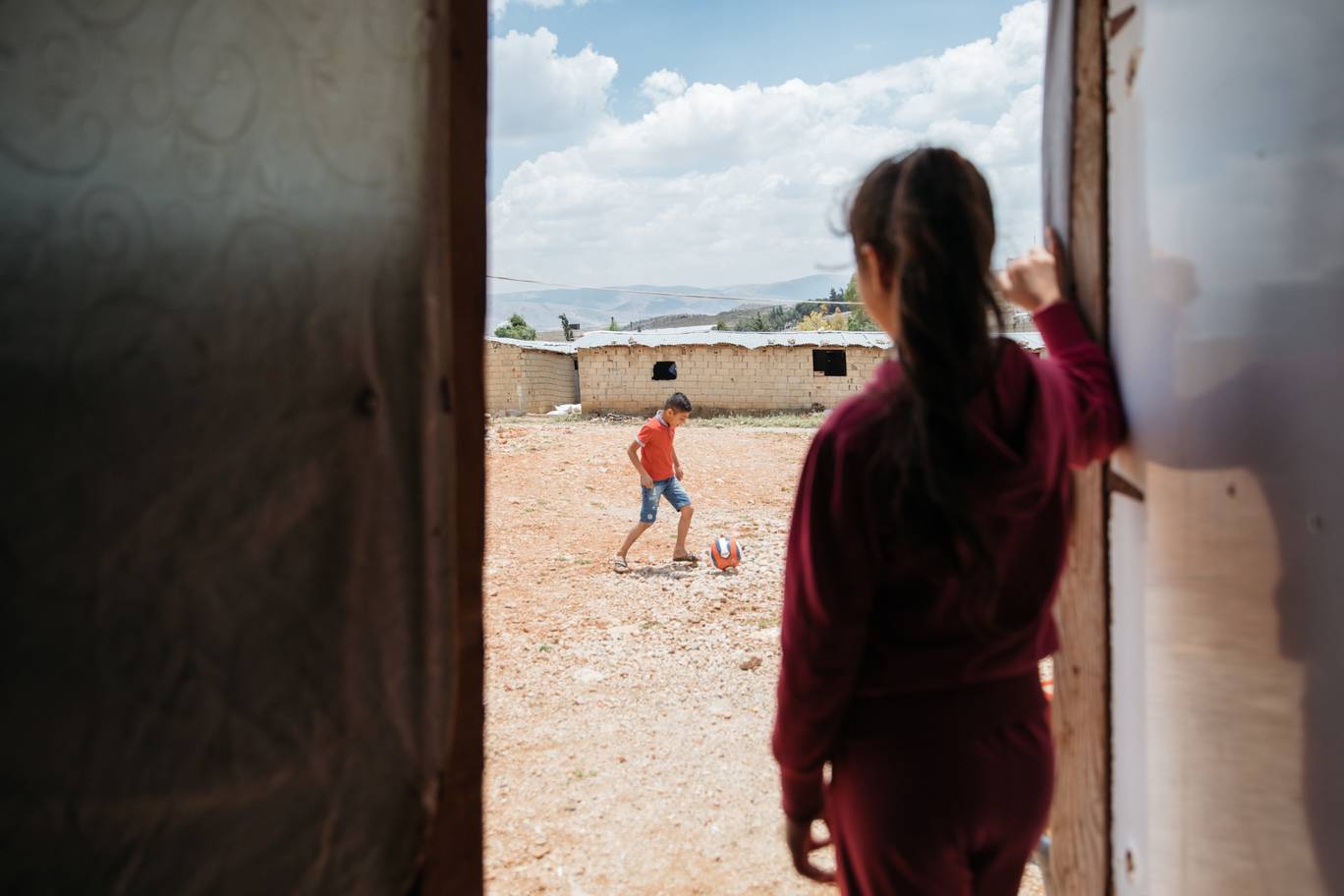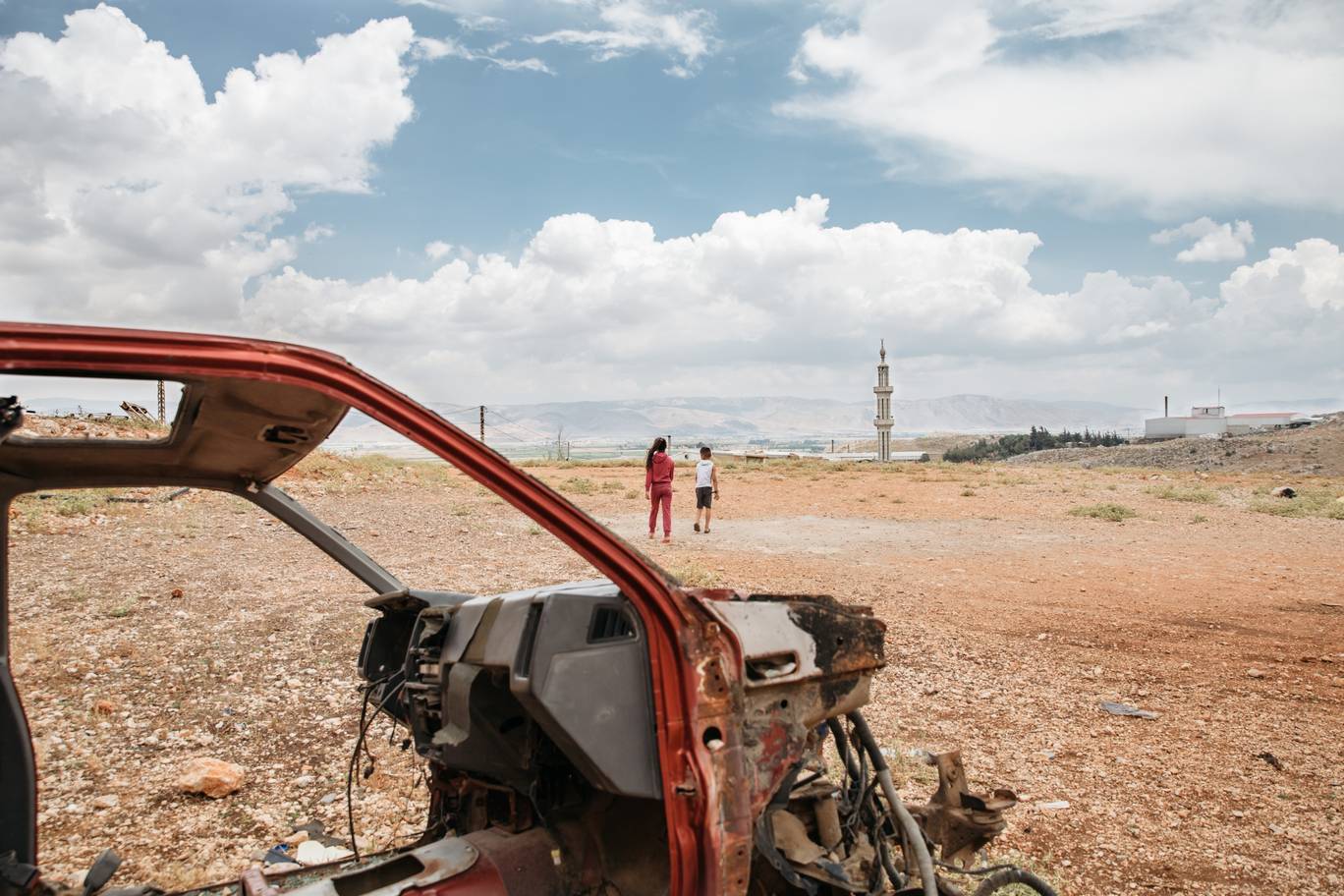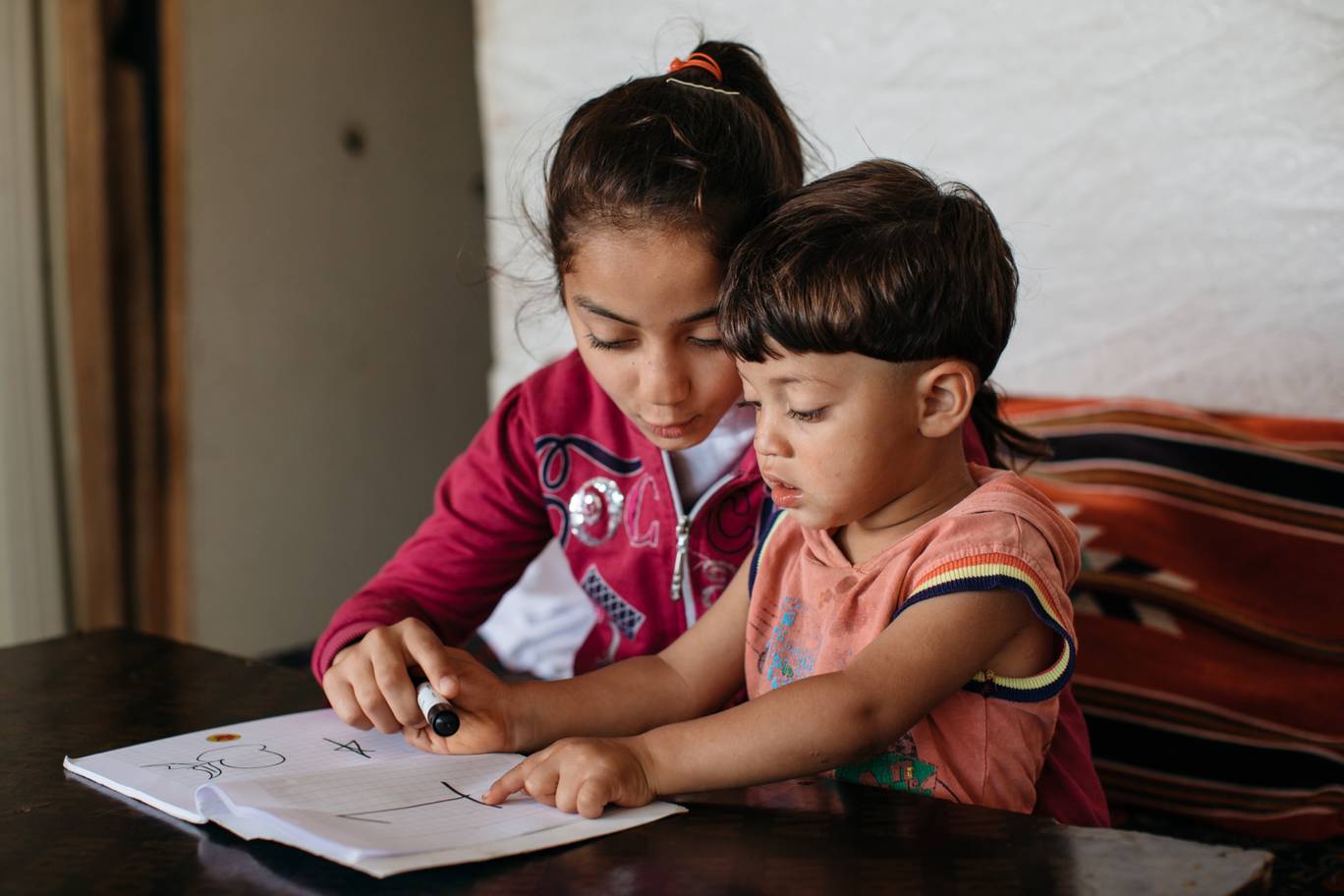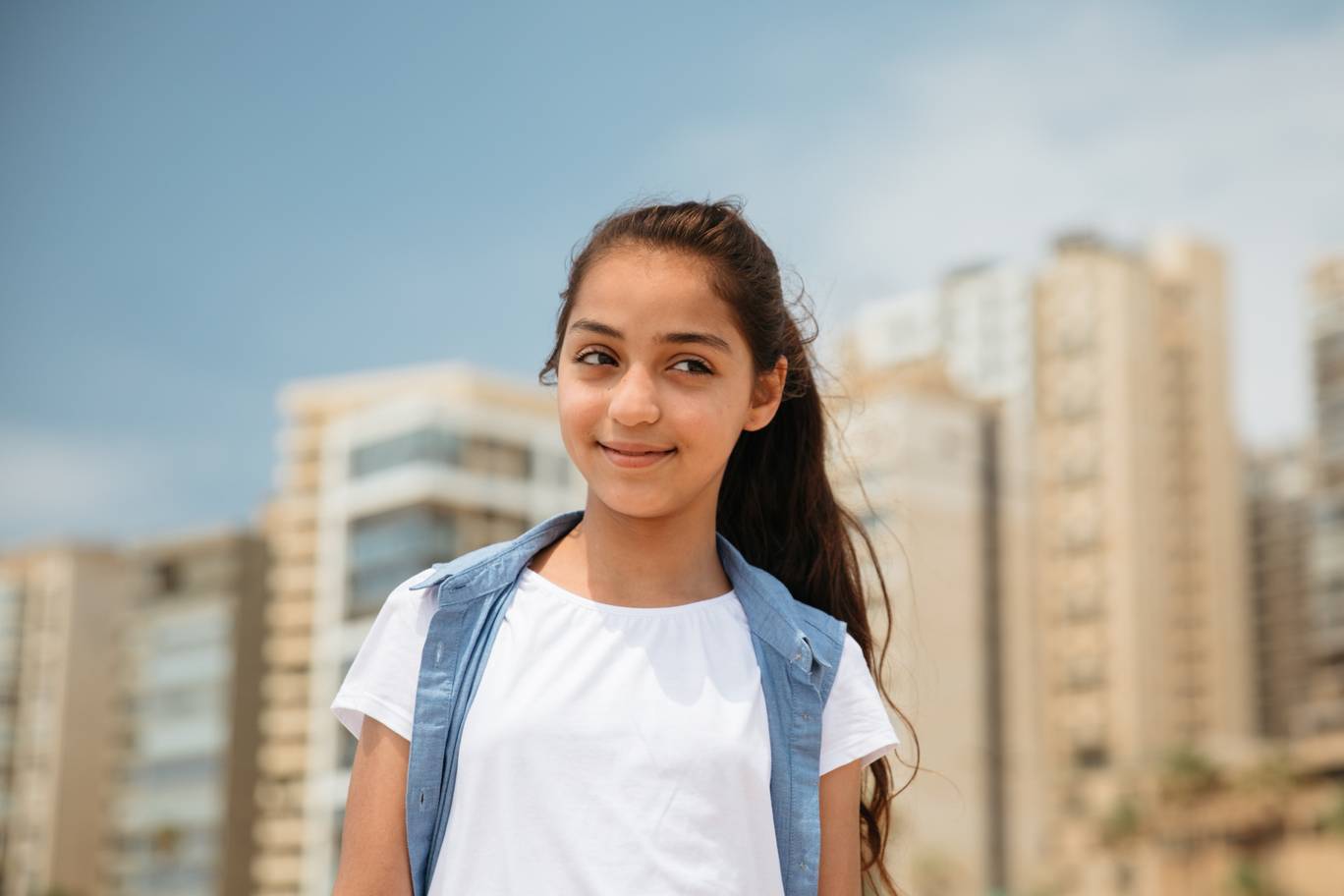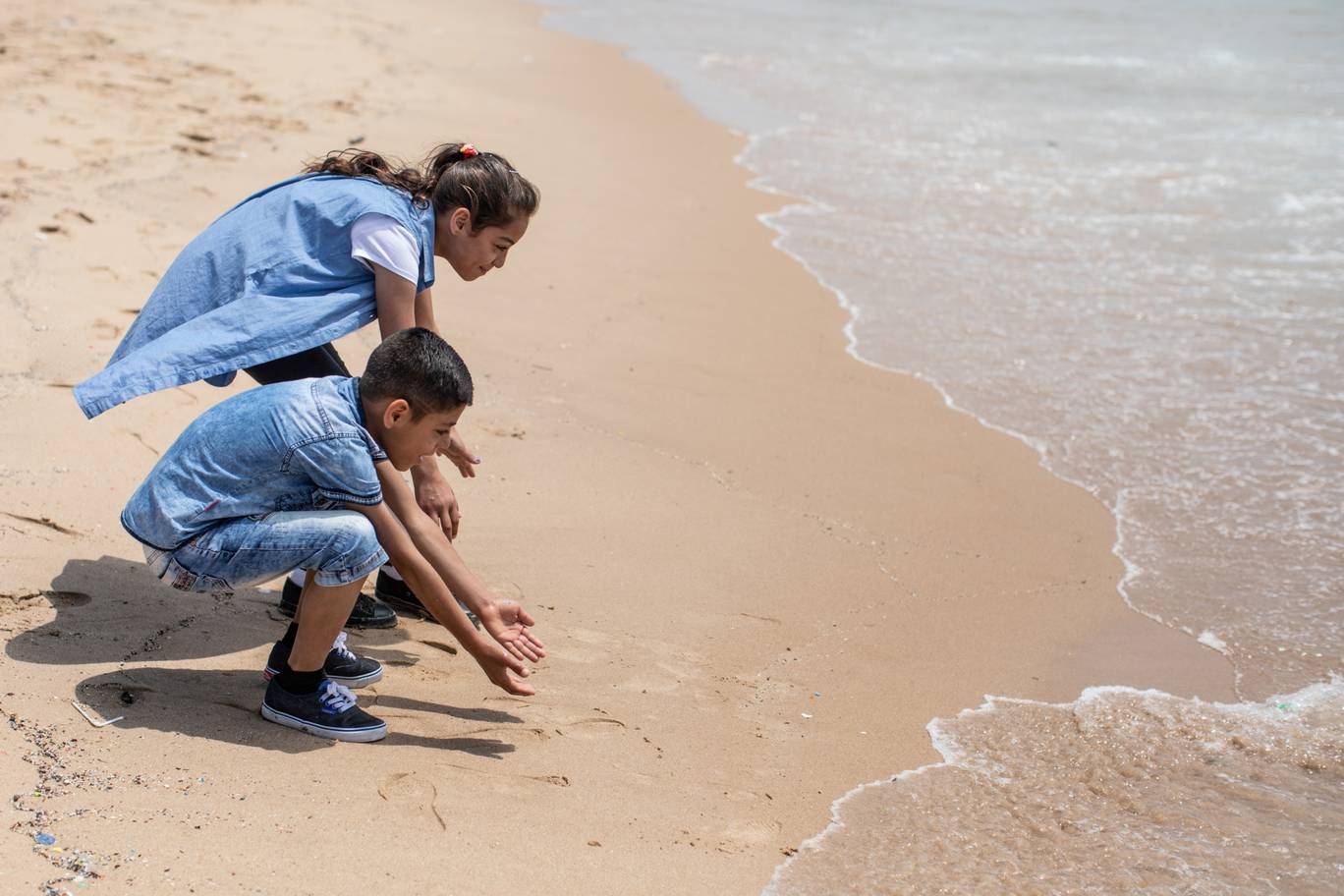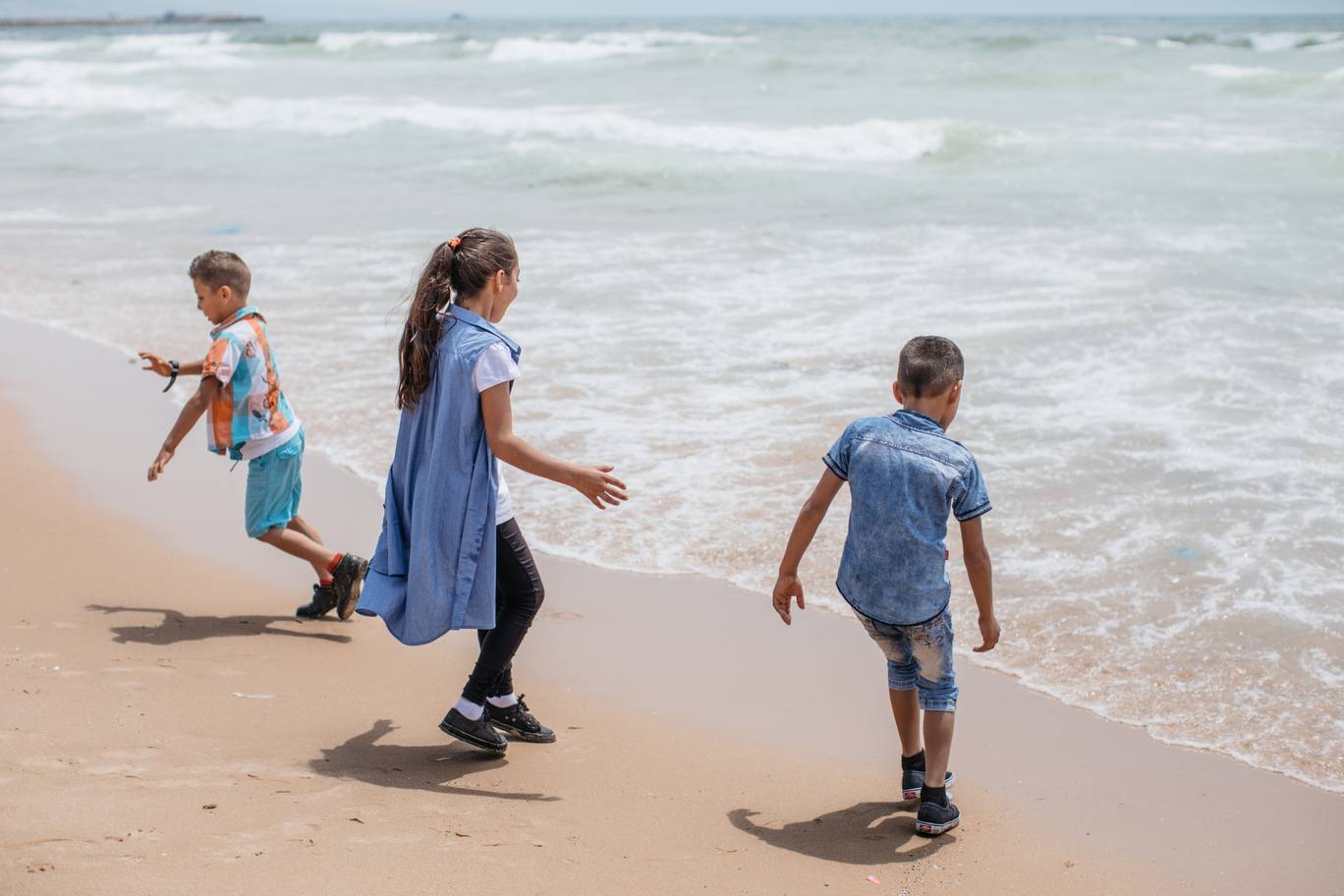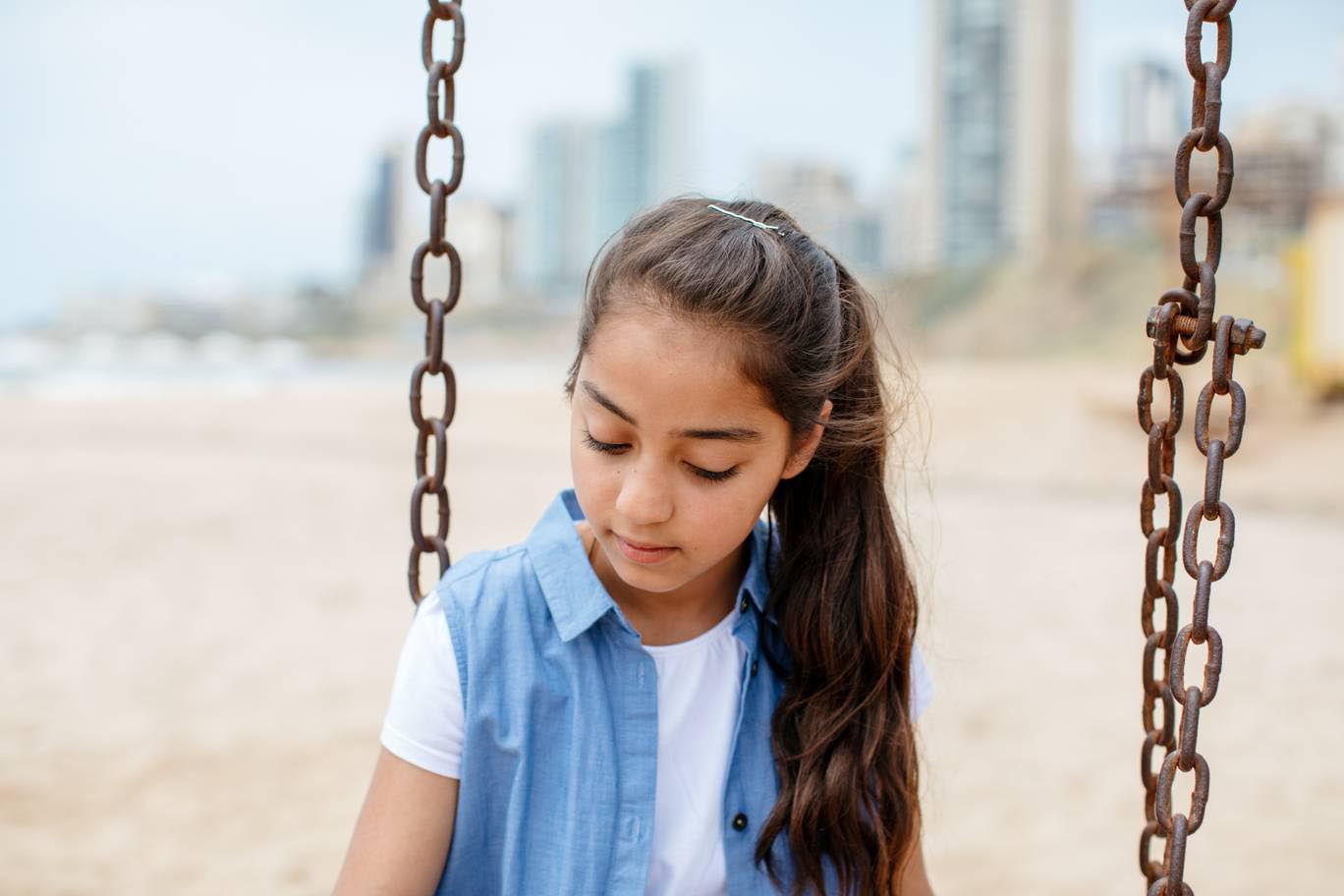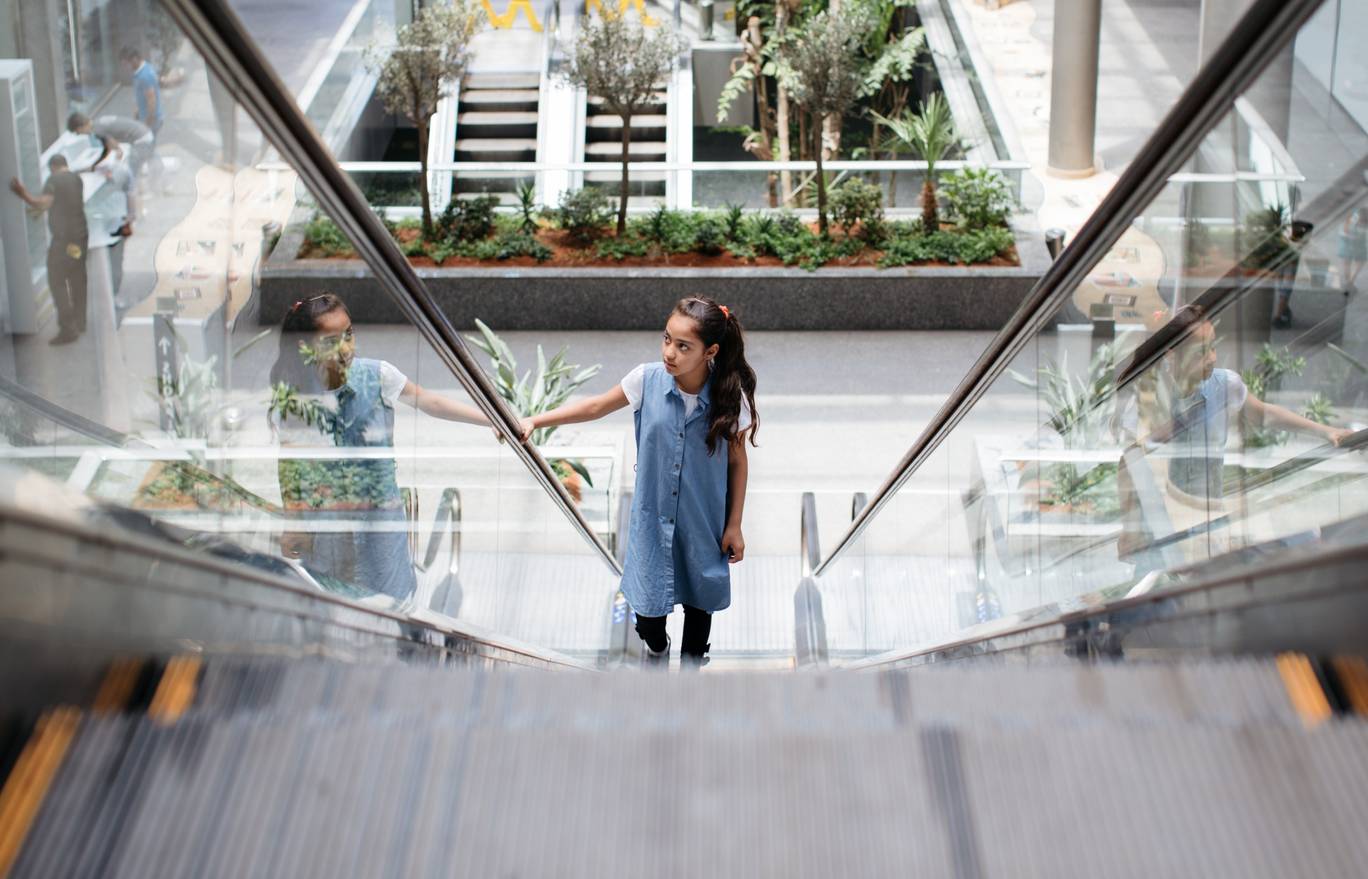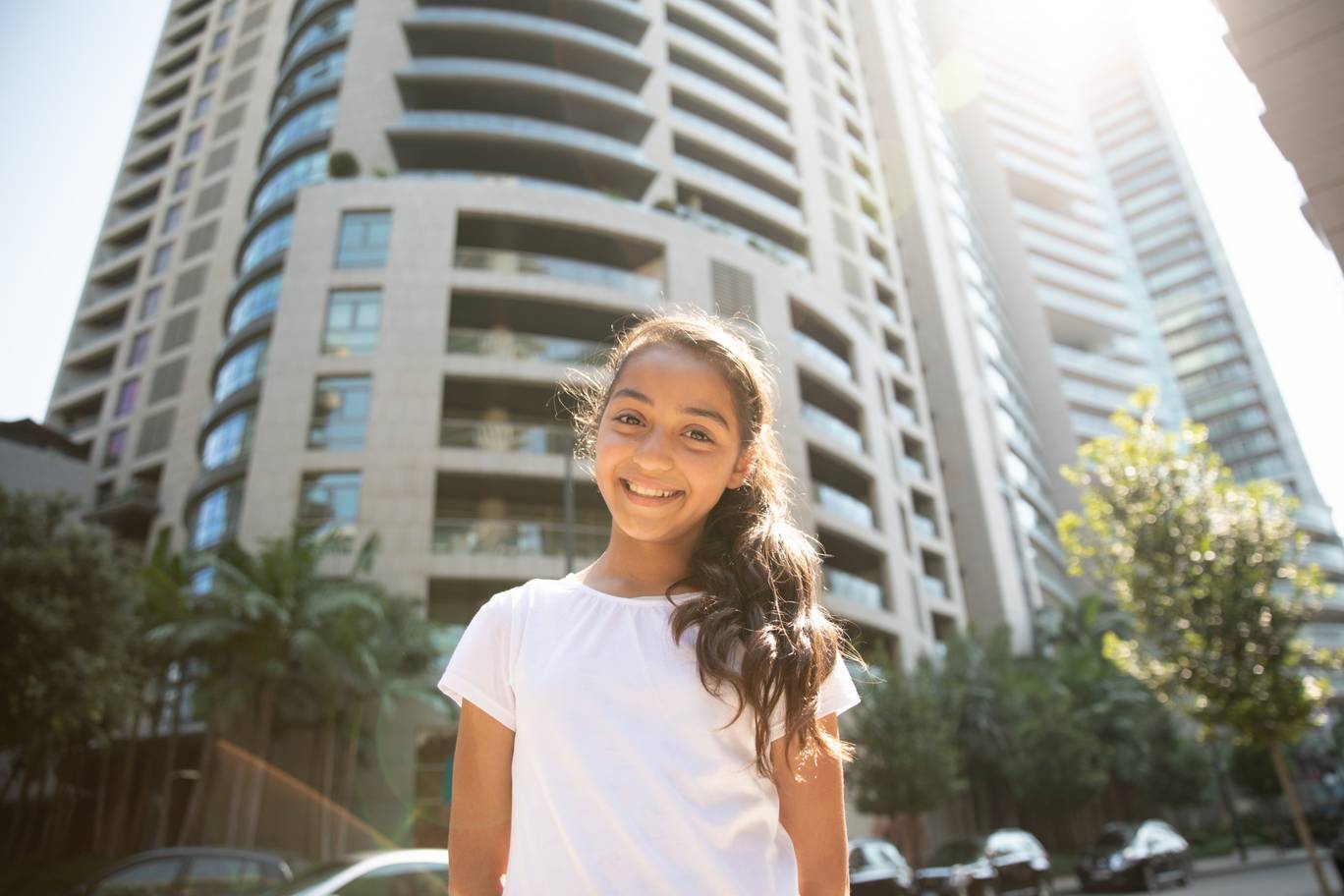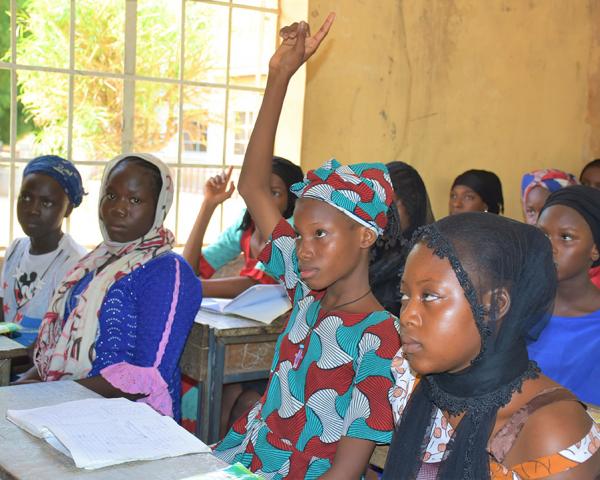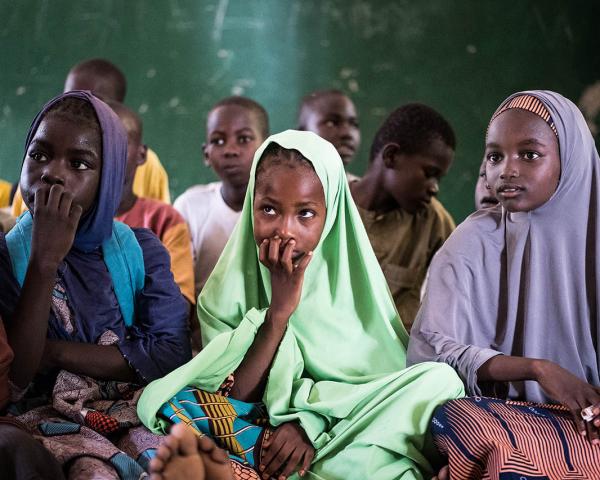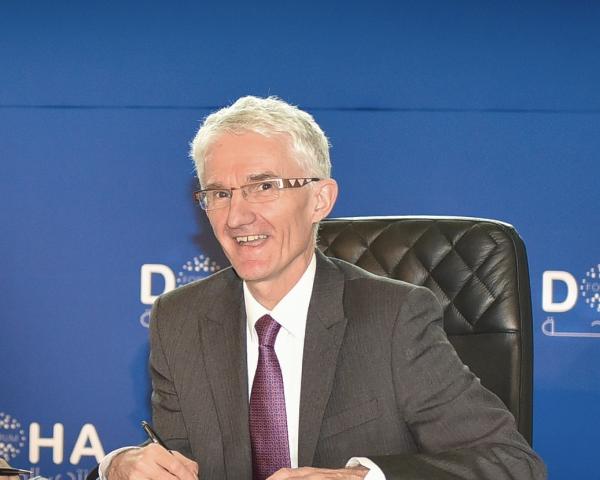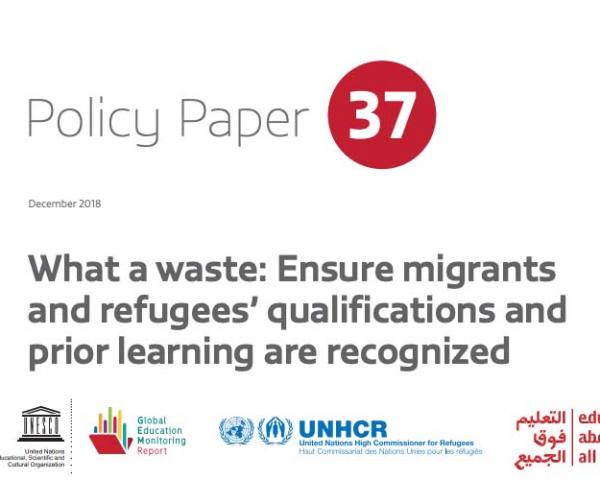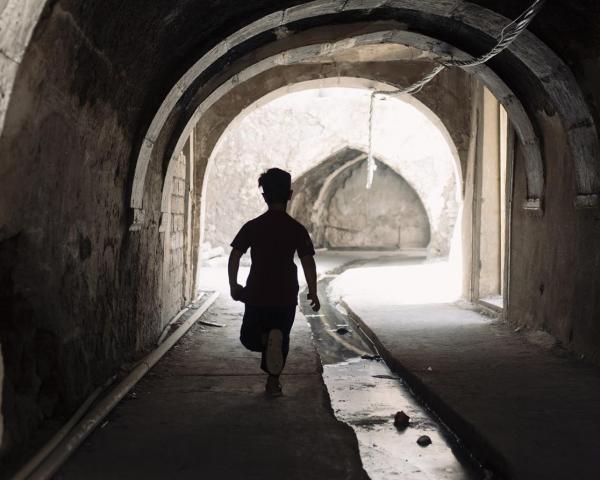Photojournalist Paddy Dowling, travelling with the Education Above All Foundation, who have secured commitments to enrol 10.4 million of out-of-school children into primary education, visits Lebanon’s Bekaa Valley
Working as a humanitarian photojournalist I spend my life boarding aircraft taking me to far-flung destinations documenting the suffering of refugees and internally displaced people alike. It seems that everywhere I turn there is so much suffering – Gaza, Syria, the Rohingya – and it seems so hopeless. I am struggling to find answers to make sense of it all in every frame I capture.
I stand in these camps with my cameras draped over my tired shoulders, notebook and pencil in hand, among the residents whose eyes haunt me imploring me to take their portraits and convey their suffering to the world. It seems to be getting harder and harder to show any glimmers of hope. I am longing to find that sense of lightness that I need to remind me that I can effect change through my work and that a brighter future is possible for those people I meet.
I am finally rewarded when Education Above All (EAA), a foundation founded by HH Sheikha Moza bint Nasser of Qatar, invites me to document their work and meet 11-year-old Sara, a Palestinian-Syrian refugee from the Kab Elias municipality of Lebanon’s Bekaa valley. She is a beneficiary of the Educate A Child (EAC) programme, and it is my time with this wonderful girl that provides me with the lightness I have been searching for and the understanding that the most powerful tool we have to transform livelihoods is education.
Sara lives in a timber-framed and woven plastic sheeted single-storey structure in an “informal tented settlement” with her mother, father and three younger brothers that has been home to the family for almost five years. To one side of their home, Bedouins’ goats graze the hard thistle plants in the shadows of Mount Lebanon; to the other there is a clear view across the numerous vineyards of the Bekaa Valley towards the Anti-Lebanon mountain range.
When we arrive Sara is inside with her mother performing her daily chores of watering the pot plants, wiping down all the surfaces and washing the concrete floors, after which she emerges from the darkness of her home to greet us.
Sara is joined by her mother Fatima, 30, her father Ghadeer, 37, and her three brothers Ali, 10, Deeb, 8, and Hadi, 2. Speaking perfect English, Sara welcomes us into her home and offers us seating. She begins recounting the day of “violence”, as she called it. She was at home with her mother and siblings when the shelling started, her father was at work in his tailoring shop where he made and sold leather jackets.
They remember the shocks and tremors when the first shells hit the area and recall hiding in the bathroom of their home, terrified, It was just a matter of time before their building was hit. The shell damaged a structural column and the building partially collapsed: they emerged covered in a thick blanket of white dust which looked like snow, but miraculously they escaped injury.
Government military personnel were soon in control of the village of Sayeda Zainab and told Sara’s family they needed to leave or her father would face being conscripted into the regime. Unable to retrieve any possessions from the rubble of their home, they fled to the city of Jaramana in southern Syria. Here private landlords were capitalising on the movement of civilians to these green zones by hiking rents up from $100 to $500 per month for a small apartment. Sara’s father was forced to sell the family car to pay for shelter, food and clothing. When the fighting was once again upon their doorstep, they moved to Qalamoun before that too became a target, with airstrikes attempting to cut off the rebel supply lines from Damascus to Lebanon.
Sara’s father is faced with the most impossible decision over what to do to ensure the safety of his family, so he convinces a lorry driver to take them to the Lebanese border, paying him $100. They sit huddled in the back of the open-top lorry amongst the cucumbers, tomato and parsley, looking through the white rusted bars to Syria fading on the horizon behind them.
Sara recalls her father sitting quietly during the journey with his eyes closed praying for a miracle. They approached the Lebanese military checkpoint on the border where he believed they would simply be turned back. However, one Lebanese military officer took pity on the family, overruling his colleagues and waving them across the border line. Sara says: “We were terrified and we were all crying”.
Sara is one of 400 students attending UNRWA’s Jefna School in the Taalabaya municipality. EAC and UNRWA have worked to bring quality primary education to 69,696 out-of-school Palestinian refugee children in Jordan, Lebanon and Syria who have left Syrian schools due to conflict. This project has provided emergency education including psychosocial and recreational support and survival skills for Palestinian refugee children whose education has been impacted by the conflict in Syria. There have been 72 psychosocial counsellors recruited through the foundation across the region and 330 UNRWA staff have been trained to assist both students and parents.
It is hard to believe there are 63 million children across the world who have no access to quality primary education due to barriers, such as extreme poverty, cultural barriers and conflict affected areas. Dr Mary Joy Pigozzi, executive director of the programme, explains: “Through Education Above All’s work with our partners, we reach the most marginalised children and believe that every child should be able to access their fundamental human right to quality education.”
EAC works to ensure that, with its partners, it reaches 10 million of these out-of-school children with access to a quality education programme. EAC’s financial commitment to date stands at over $672m and collectively, with partner co-funding the EAC project, exceeds $1.8bn. Dr Pigozzi adds: “Of the EAC projects that can compute retention, the average retention rate is 88.5 per cent (June 2017). This is considered high, given the multiple barriers that OOSC face in accessing and remaining in primary education.”
Sara is one of the brightest children in her school, achieving distinction in each semester. She has an insatiable thirst for learning: when asked what school and education means to her, she replies in Arabic: “Education is the foundation of my dreams.”
Jefna School has just broken up for summer, but Sara would much rather be at school than spend her time in the tent watching her brothers playing football outside when they won’t let her to join in. As a consolation she seeks comfort in teaching her youngest brother Hadi some of the basics of English to ensure he gets a head start before he begins school in a few years’ time.
Sara has no desire to remain in Lebanon any longer. She says she hates her tent and wants to live in a country where she can speak English and study to become a doctor to help other people, and to live in a house that doesn’t allow the snow in the harsh winters to drift in or let the rain water drip in through the canvas roof lining.
Sara refuses to accept that this is her destiny and she has been invigorated by the quality of education she has received. Ghadeer, her father, says he hopes that someone will help his daughter to realise her dreams. “Perhaps an aid agency like the UN will call and offer us a new life in a country like Canada, the Gulf states or Europe.” My eyes meet his which are now full of emotion, he retreats his gaze to the floor and the sense of failure he feels now fills the room.
During my time with Sara, she had asked me on more than one occasion what Beirut was like. She imagined it was “very big and very beautiful”. With permission of their host agency UNRWA, we organised for the family to visit the city, something Sara’s family would never be able to afford on $260 per month cash vouchers they receive from UNRWA that barely cover food and all essential household bills.
The family arrive in Beirut after their long journey down the mountain roads and, when invited to see the view from the 13th floor of our downtown Beirut hotel, they sit silently watching, mesmerised by the world bustling around below them.
When we venture out into the heart of the city, the family seemed to find a new spring in their step, smiling, joking and laughing with each other. Sara’s father seemed to find his voice and strength, and looked invigorated by the experience, watching his children having so much fun.
Sara and her siblings had never seen the ocean or stood on its shores. With “tent rules” a distant memory, it was here that her brothers were inviting her to play with them, building sandcastles together and paddling in the white water.
Sara seemed to take the day in her stride, smiling with confidence as she led her family from the front. There is no doubt in my mind that the quality of education she has received, as well as the psychosocial support, is playing a key role in readying Sara and her brothers for a brighter future, wherever that might be.
Her Highness tells world leaders gathered at an event at the New York Public Library “the world is not a safe place, yet… Millions of children are still waiting and in desperate need of our help. Let’s work together to ensure a better future for all of them and for the world we share. Believe me, it is possible.” She has put her stake in the ground and has challenged us all to meet her and change the inevitable course of the lives of so many people I meet in all corners of the globe.
This is my big shout out to governments, corporations and the super privileged of the world “if you are not involved, you should be” we cannot keep turning a blind eye to this, it will not go away or miraculously get better on its own. Compassion fatigue is just an excuse, it’s another phrase for sticking our heads in the sand. Here is an interesting statistic for the bean counters of the world from some recent research… ‘The cost of not educating OOSC significantly outweighs the necessary investments for providing universal primary education and in some countries this exceeds the value of an average year of economic growth”
But for now Sara is still in her tent clutching on to her dreams of a better life for her and her family as they wait patiently one day for a phone call they hope will change there lives forever.







